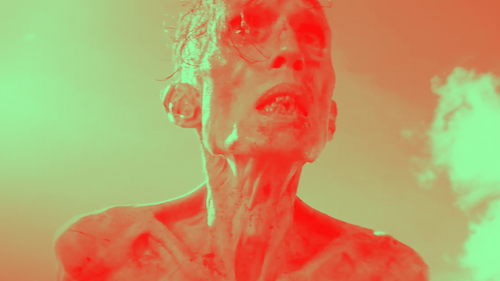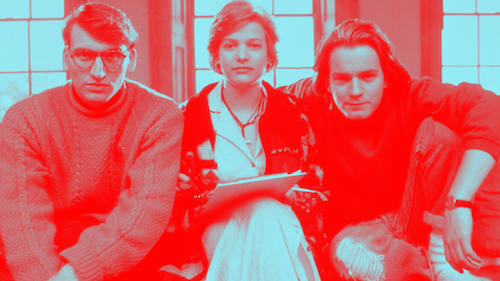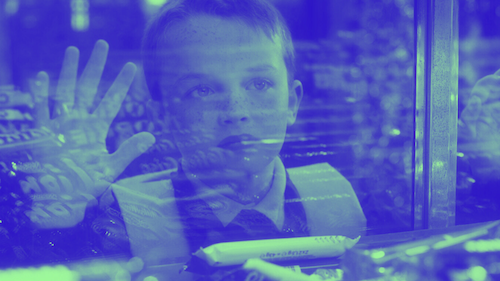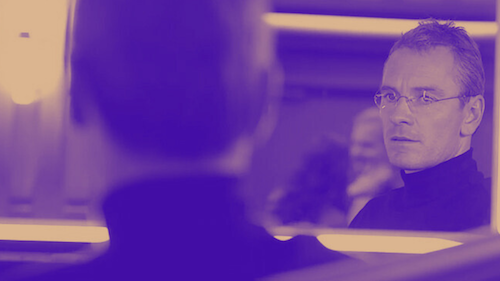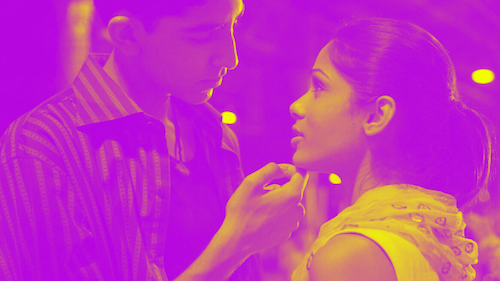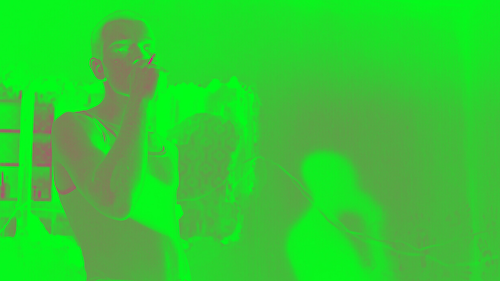Filmography Worship: Ranking Every Danny Boyle Film
Written by Andreas Babiolakis
Filmography Worship is a series where we review every single feature of filmmakers who have made our Wall of Directors (and other greats)
There aren’t many directors like Danny Francis Boyle. A filmmaker whose style is akin to the speed of attention deficit hyperactive disorder, pulling from so many different sources of pop culture, cinema, and art. An artist who is willing to try any genre and theme, Boyle doesn’t settle for just one general area of expertise. This has made him somewhat of a hit-or-miss director (with many more hits than misses, mind you) whose risks pay off because you know he’s going to go the distance with whatever he is trying next (nothing ever feels half baked with Boyle). You also never know what to expect with his films as a result, outside of knowing that you’re going to get a different take on whatever he is tackling this time.
A former producer for the BBC before he started making motion picture films, Boyle was clearly destined to juggle projects and ideas from wherever called for him spiritually. While Boyle has mainly directed feature films since, he has also returned to television since (with the television series Pistol about the notorious punk rock band, The Sex Pistols), and even directed the opening ceremony for the 2012 London Olympic Games (with what is considered to be one of the strongest opening ceremonies in recent memory). Focusing on his feature films, Boyle has a lot to celebrate here even if there are a couple of duds to sift through as well. While I think it is difficult to sort his very best works outside of his lone masterpiece (which feels fairly obvious to me), it brought be much joy to revisit his catalogue even when writing about his worst films just because of how different his work feels. It’s time to rank the works of Danny Boyle from worst to best.
14. A Life Less Ordinary
I rarely go this hard on a film by one of my favourite directors, but I cannot stand A Life Less Ordinary: unquestionably one of the worst films by a great filmmaker in at least our life time. Despite the super strong cast and the promise that came from following Trainspotting, A Life Less Ordinary is a hair-brained attempt at screwball comedy that is far more annoying than it is funny. As we follow a kidnapper, his hostage, and two guardian angels who are tasked with making them fall in love (yes, this is the premise), you’ll find that every character, even the ones played by amazing actors like Holly Hunter, Delroy Lindo, and Ewan McGregor, is incompetent and irritating. Boyle’s ADHD style is at its absolute worst here as it only enables the nonsensical tone that A Life Less Ordinary boasts. If you really want to complete Boyle’s filmography, then proceed with watching this film. Otherwise, and I rarely do this with my Filmography Worship series, I outright suggest avoiding A Life Less Ordinary unless you want a migraine.
13. Yesterday
What does it look like to squander a premise that has brilliant promise? Boyle’s Yesterday is your answer. On paper, the concept is that some cosmic event causes a blip in reality where the music of the legendary Liverpool band The Beatles no longer exists. What would transpire afterward? We follow Jack — the only person on Earth who remembers The Beatles — and his quest to bring back these iconic tunes to the masses, which, in turn, turns him into a superstar over night. There are a couple of major problems with Yesterday which hinders the potential here. Firstly, the world never properly shifts to one where The Beatles never existed, since the vast majority of the music that The Beatles inspired (excluding Oasis, who are sacrificed as an obvious punchline here) still remains (another joke including Coldplay falls flat, because there is no way Coldplay would exist in a world without the fab four). Secondly, Yesterday reveals itself to be barely even about this concept; instead, it is a romantic film following Jack and his connection with Ellie, and when you prioritize a run-of-the-mill rom-com story above an inventive premise, you wind up with a mediocre film.
12. Trance
Trance feels like Boyle’s answer to Christopher Nolan’s Inception: they’re both heist films that involve the manipulation of one’s brain in order to garner risky results. The difference is that Inception works tremendously, while Trance kind of collapses underneath the weight of its complexities (Nolan is calculated, while Boyle is typically electrifying and manic, which means a film like Trance becomes too unfocused to work properly). I think Trance is worth a try for those who are interested because we do get some of Boyle’s boldest visions here (especially when he goes all-out with the illusionary, hypnotic visuals and concepts), but I’d otherwise call Trance a well intentioned effort that has the right idea with being a mental exercise; the main problem is that it gets a little too in its own head, and it plays like your brain being unable to simmer down as you wind down for bed.
11. The Beach
I’d say that the quality of films from here on out takes a bit of a leap into the “good” territory. Yeah. I said what I said. The Beach is imperfect, but I’ll easily defend it as an underrated Boyle film. Sure, sometimes Boyle’s high-octane filmmaking gets the best of him here (Leonardo DiCaprio turns in one of his weaker performances of his career, the film gets a little silly with its self awareness sometimes, et cetera), but I otherwise think that people focus on these aspects and neglect to reflect on the things that do work. The Beach is a bit of a response to films like David Fincher’s Fight Club, as it is a cheeky-yet-dangerous testament to the paradoxical natures of society and pop culture, all within the confinements of not just a secluded location but the minds of existentialist youths. I won’t pretend that The Beach is secretly a misunderstood classic that we’ve all been sitting on, but I also think that much of the slander the film gets is likely because it seems fun to mock a film that is as self satirizing as it is sincere with its messaging.
10. 28 Years Later
Boyle and Garland revisit 28 Days Later with an answer to the ongoing uncertain times as of late. 28 Years Later becomes far more concerned with the divide of civilization and the unknown ahead than the hope instilled by the previous film. Boyle also gets a little ahead of himself with his signature frantic style this time around, but with it he is able to tap into some new depth within the zombie genre once again; perhaps not to the extremes and successes of 28 Days Later, but enough so that this sequel warrants at least one watch. It may not stick with you like the best Boyle films, but it may help you find at least some solace in a society where there is awful news every single day and we have yet to fully transition out of a post-COVID reality. 28 Years Later is always interesting, but it occasionally cannot grasp what it is capable of — whereas other moments in the film leap over expectations with ease; I wouldn’t call the film hit-or-miss, but it is definitely less thorough and unified than 28 Days Later.
9. T2 Trainspotting
I think it goes without saying that T2 Trainspotting wasn’t a necessary sequel on paper, even though I am fully aware of Irvine Welsh’s followup novel to Trainspotting titled Porno. Well, Boyle tried to silence naysayers with this followup to his breakthrough classic and he, for the most part, succeeds. T2 Trainspotting only takes a bit of inspiration from the Porno novel and instead acts as a faithful continuation of the film that put Boyle on the map. While I won’t pretend that it is a must-watch, those who are curious about what transpires after the events of Trainspotting (which I think are perfectly left as-is) will find a continuation of the themes of selfishness, addiction, illness, and pressure within an even darker take on the human condition. It’s a noble effort considering how useless a sequel like this could have been, and I feel like the biggest fans of the original film and novels will also gravitate towards this strong followup which, ironically for someone as stylish and retro as Boyle, never gets lost in nostalgia.
8. Shallow Grave
Boyle’s career started with this strong debut, Shallow Grave. From square one, you can see the outside-the-box directing decisions that somehow both keep audiences at a distance and lure them in to a story via unconventional means (as if Boyle’s directing is a dish that is so strong in taste that you notice it right away, and yet you cannot help but having subsequent bites). As we follow shitty people and their selfish drive to backstab one another, we feel Boyle’s punchy style punctuate the film’s various tropes and themes with flair. What we see here ultimately gets refined in Trainspotting, and I’m happy that Boyle explored other genres of film shortly into his career (he was mainly invested in what lives of crime do to peoples’ hearts and minds) because a filmography that only tackles one subject or theme is a dull one. As Boyle is adventurous, Shallow Grave remains a noteworthy debut that stands out at least a tiny bit in his catalogue (if only in the shadow of the film that would take the director to cosmic heights). For those who haven’t seen it, Shallow Grave is interesting and feisty enough to warrant a watch.
7. Sunshine
I think many Boyle fans can agree on two things. Firstly, that Sunshine — his first answer to the science fiction genre — had the potential to be one of his greatest releases. It is so ambitiously profound in its aesthetics, scope, and themes of apocalyptic disaster; it felt like a prescient message that we desperately needed to hear regarding the state of the planet (and it’s even more important now). Sunshine is as unconventional as it is gorgeous. The second thing many Boyle experts may see eye-to-eye on is that Sunshine’s conclusion is what lets it down: it’s a conclusion that forgoes the mythology being set up by the film for a by-the-numbers thriller that we’ve seen done to death (and better). It’s too bad because Sunshine could have easily been a masterpiece had it not buckled under the weight of its capabilities, and it’s a sign that Boyle’s unpredictable approach to directing (one that is driven by what feels like the zoomies and a pool of inspirations and ideas) doesn’t always work out with his deviations and risks. As it is, Sunshine is good enough to watch as long as you know that it doesn’t stick the landing; what comes before the climax is great.
6. Millions
From this point on, Boyle’s career is full of nothing but brilliance. We kick off this stretch of incredible filmmaking — the projects where Boyle’s unhinged style pulled off fantastic results — with one of the more interesting family films perhaps of all time. Millions is geared towards children and all ages (even with a few “mature” moments and themes), but not once does the film ever feel safe, or as though it is pandering to younger audiences and insulting their intelligence. As we follow two brothers and the discovery one makes of a bag of millions of British Pounds, we also learn the different perspectives and approaches that can be made during this hypothetical scenario. As the film delves deeper into the concepts of poverty and familial struggle in the twenty first century (as well as the danger that comes from the connection of the discovered fortune), Millions goes the extra mile with what both children and adults can take away from a morality tale. Millions is under loved, and I will sing its praises until the day I die.
5. 28 Days Later
Growing up a major horror fan, I never found 28 Days Later scary, because I was not shocked by any jump scares or disturbed by any of the effects or sequences; I still loved the film because it is a powerful take on what the end of the world may look like and how different consciences will tackle these kinds of do-or-die predicaments. It took some growing up from me to realize the true horror from a film like 28 Days Later comes not from its tactics to spook audiences but from the reality that stems from this fictional scenario, including watching loved ones die in a zombie apocalypse (as well as having to literally kill your favourite people and have to put them out of their misery while protecting yourself and others). So much of 28 Days Later is devoted to the moments that bring us together, including stunning sequences of unity and resilience (including the admiration of the last remaining parts of the world that have yet to be destroyed by illness or humanity). In return, the heavy consequences bring us back to the deepest pits of despair that are frighteningly possible in our reality. I now remain petrified of 28 Days Later, because I know so much more about what Boyle’s film is saying about the state of civilization and the ensuing possibilities of a fatal pandemic.
4. Steve Jobs
Biographical pictures can be so tired and dull, but not when you have a director as extreme as Boyle and a screenwriter that matches that energy as well as Aaron Sorkin. The end result is Steve Jobs: a biopic that takes place over the course of three different hectic Apple product launches, with the titular figure showcasing both his commanding presence and his toxic selfishness as the chips are down and things go wrong minutes to showtime. The pressurized environment of this film makes for one of Boyle’s most anxious watches; even though we know what ultimately transpires for Jobs and Apple, Steve Jobs cleverly makes these moments of tension excuses to have character revelations and exposition (including people in Jobs’ life coming to him at the most inopportune times to confront how he has treated them in the past). The film is so efficient with how it relays information, creates tone, and tells a very complicated person’s story. It’s as refreshing as biopics mainstream get.
3. Slumdog Millionaire
Yes. Slumdog Millionaire is incredible, and I don’t care who disagrees with me anymore. I am tired of the slander this film gets. I acknowledge the problematic production related concerns with this film, but I’m judging this motion picture as it is, not what it took to get there (that can always be a topic for another day). I honestly feel like people misunderstand the convenience of this film, and, to be fair, I also typically hate films that line everything up in unbelievable ways. So, why do I excuse a film about a poor Mumbai man who wins the Indian adaptation of Who Wants to be a Millionaire? because he is able to answer every question based on circumstances of his life? The film is clearly an homage to the unrealistic dreams found in Hollywood and Bollywood works, and it acknowledges that such a feat is essentially impossible; that’s kind of the point, as it spotlights the uphill battle many impoverished people face and the inability to get out of this position. It’s clearly a mature fairy tale that the same kinds of people who yell at me to turn my minds off for Marvel projects and The Fast and the Furious for once refuse to do the same for. It’s your loss. Slumdog Millionaire is such a creative milestone, and I will never feel otherwise.
2. 127 Hours
What do you do with the time you have on Earth? What if that time is cut short and you are facing the seconds you have left, all in effort to extend your life? 127 Hours could have just been a survival film or a traditional biographical picture about Aron Ralston (who famously had to amputate his own arm to escape being trapped under a boulder), but this is Boyle we’re talking about here. Instead, we get an amalgamation of all of the choices Ralston made up to the point of his unfortunate accident, and his hallucinations brought on by his injury and starvation bring forth his backstory. We’re trapped right there with Ralston, both in person and in his mind. Despite the minimalist space and activity, 127 Hours feels like the ultimate sport film that you cannot help but cheer during. It’s an instance where Boyle’s style works at peak levels despite how much it would seem like his energy would work against the story, and it’s a reminder of how fascinating he is when he is operating at his very best: there aren’t many directors who can pull off this idiosyncrasy quite like Boyle.
1. Trainspotting
Choose life.
Trainspotting is so much more than just an anti-drug film, a black comedy, a crime drama, or a staple of the ninetines film scene. What seemed like the United Kingdom’s answer to Quentin Tarantino’s Pulp Fiction (a similar mixture of genres and themes), Boyle’s Trainspotting was a rush of a film to watch, and it remains as exhilarating and unique as it ever was. Boyle’s diversions turn into the hallucinations of junkies as they face the worst elements of life, poverty, and addiction. Instead of just focusing on the highs and lows of… well, highs, Trainspotting becomes an analysis of all kinds of people, not just the low hanging fruit of people who need rehabilitation. We’re all addicted to something. Trainspotting reminds us that there are far more addictions out there than just narcotics or alcohol, and sometimes our addictions manifest in glaring ways (say, an addiction to being loved renders someone depressed, or an obsession with power can make someone unlikable and a jerk).
As we follow a gang of friends with no hope in the world, we know what complete rock bottom looks like (Trainspotting makes even the worst situations feel a little fun, so we can know why these folks feel the need to get high before we, and the film, wills for them to get better). We get mixed results with some individuals faring better than others, but that’s what happens when we are all self destructive: some of us stop erasing ourselves before it is too late. Trainspotting recognizes that we all have vices and destructive tendencies, and that life is worth getting hooked on more than anything specifically within it. There’s much to love about life even with all the darkness within it. Trainspotting is a difficult film made sensational thanks to the unparalleled style of Danny Boyle that I honestly don’t think any one else could have made. It remains his magnum opus.
Andreas Babiolakis has a Masters degree in Film and Photography Preservation and Collections Management from Toronto Metropolitan University, as well as a Bachelors degree in Cinema Studies from York University. His favourite times of year are the Criterion Collection flash sales and the annual Toronto International Film Festival.






